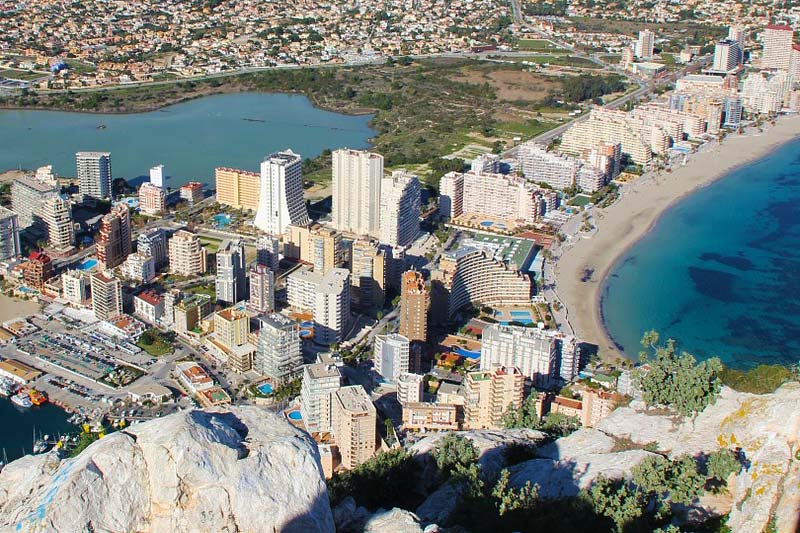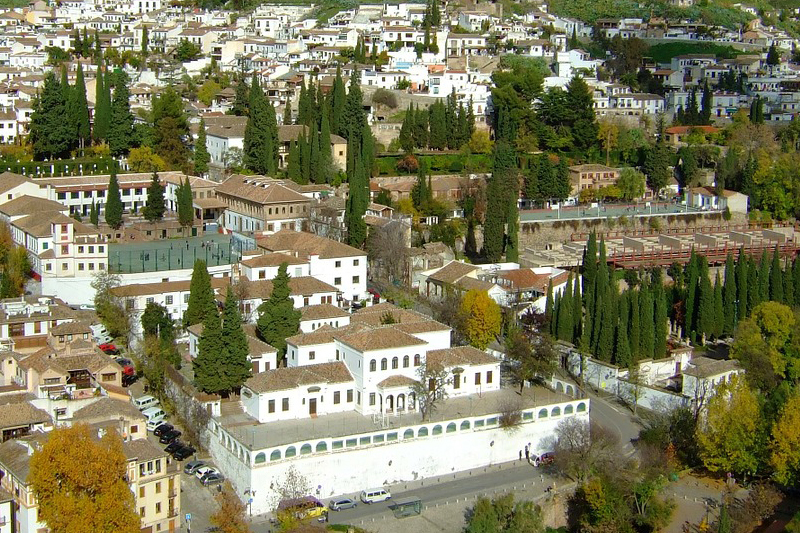Setting up an Expat international bank account in Spain
Tiffany JansenPosted: March 4th, 2014
 Calpe Alicante Spain
Calpe Alicante SpainLike so many expats, you’ve chosen sunny Spain as your next destination.
To function in your new home, you’re going to need to get your finances in order. That means setting up a bank account.
Banking in Spain is both safe and reliable, and thanks to the tips below, starting your new account can be a breeze.
Money Matters
Spain is the second largest country in Europe and, like much of Europe, the national currency is the euro (€).
Notes are in denominations of 10, 20, 50, 100, 200, and 500 euros. Coins are in denominations of 1 and 2 euro, and 50, 20, 10, 5, 2, and 1 cents. One hundred cents make up one euro.
Cash machines are widespread and good for topping up your mobile credit and purchasing event tickets as well as withdrawing cash. Just be aware that you will be charged a fee for using an ATM from a bank other than your own.
Debit cards are accepted at most establishments. Credit cards can also be used to make payments, with Visa and Mastercard being the most widely accepted. Certain terms and conditions may apply to credit card payments, such as extra fees or minimum purchases.
You’ll be expected to show some form of identification when paying with credit or debit card.
In the extremely rare cases in which cheques are accepted, you will be required to show a cheque guarantee card, which guarantees the merchant that you have sufficient funds. Withdrawing money from your account by cheque is also an option, depending on your bank.
Recurring payments such as rent or utilities can be debited directly from your account. Simply ask your bank to set this up for you.
Book Your Spain Hotel Here ⬇
Banks in Spain
Spain has more banks per capita than most other countries on the continent, with more than 170 banking institutions to choose from.
Banks in Spain fall in one of two categories: bancos (privately owned banks) and cajas (state owned banks). Though both offer similar services, cajas are regional banks and bancos are more general.
Banco de España is Spain’s central bank. Commercial banks include Cajamar, Unicaja, La Caixa, Banco Sabadell, BBVA, Banco Popular, Banco Santander, BankInter, and Catalunya Caixa.
International banks are well represented, among them Citibank, Halifax, Barclays, and Deutsche Bank.
Account options are seemingly endless: savings accounts, current accounts, fix deposit accounts, mortgage accounts, credit accounts, investment accounts, payslip accounts. There’s even an ‘under 26’ account for students 26 years and younger that comes with all kinds of deals, discounts, and freebies.
Other services include online and telephone banking, standing orders, and direct debit.
But, as the saying goes, nothing comes free. Spanish banks charge fees for setting up an account, debit card transactions, transferring funds, account maintenance, and administration.
Pinpointing bank hours can be tricky as they tend to differ depending on branch, location, time of day, day of the week, or season.
Monday through Friday, banks are open anywhere from 8:30 in the morning till 2 in the afternoon, though some branches may stay open later. Some banks offer additional hours on Thursdays from 5pm-7pm during the winter season.
Most banks are open Saturdays from 9am-1pm. Expect banks to be closed on Sundays and holidays.
What You'll Need
There are two types of accounts to choose from: a resident account (cuenta para residentes) and a non-resident account (cuenta para no residentes).
To apply for a resident account, you’ll need a residence permit and an NIE (Número de Identidad de Extranjero) identification number.
For your residence permit, you’ll need to have lived in Spain for at least 6 months, have a spouse or a child under the age of 18 who is a resident of Spain, or use Spain as the headquarters for your business or professional activity.
If you’re interested in a non-resident account, you’ll need to provide a certificate of non-residence, which can be obtained from your local police department. Some banks will also supply you with one for a fee.
Regardless of which account you decide on, make sure you have:
- Some form of identification (passport)
- Proof of address (recent utility bill)
- Proof of employment (payslip or contract)
Applicants must be 18 or older. You may need to provide a minimum balance depending on the bank and what type of account you plan to open.
Your account will be active immediately, though it may take a few days before you receive your debit card.
Good to Know
- Not all banks offer English language service, but the larger banks are more likely to have English speaking staff on hand.
- At most banks, you’ll be able to open an account in currencies other than the euro.
- You may want to check with your current bank to see if they have an offshore division so your banking history will remain consistent.
- Cheque books are not issued automatically as cheques are rarely used. Should you wish to have a cheque book, you will need to request that your bank issue you with one.
Everyone has different needs when it comes to banking, so be sure to do your own research and shop around until you find a bank that’s right for you.

